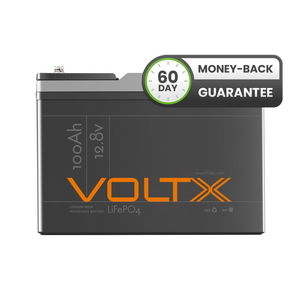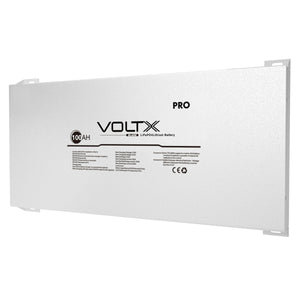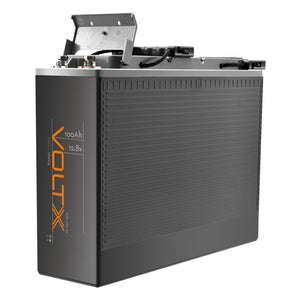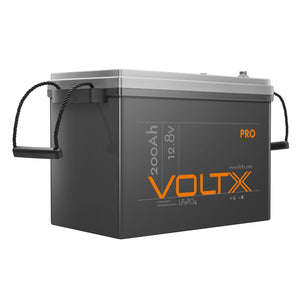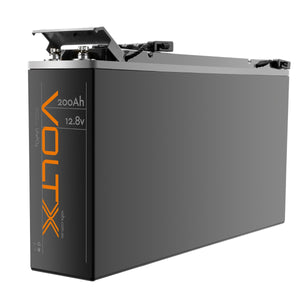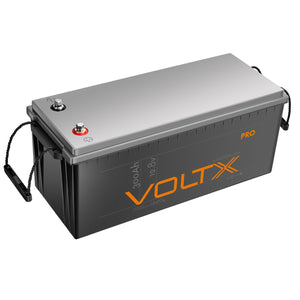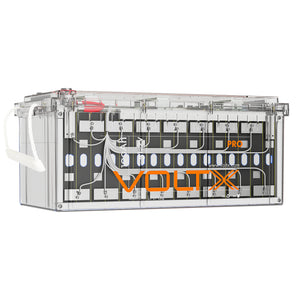The continuous rise of modern technology over the years has led to the use of batteries on a daily basis. From your battery-powered lawn mower and battery powered led lights down to the solar power battery you're planning to purchase to help save costs, a big chunk of your everyday activities requires the use of power packs. Going camping? You need to bring a portable battery to power your electronic essentials. Phone out of charge? Bring a portable power bank and you can top that off instantly.
For something that is widely used, the concept of battery power is not fully understood by many, especially in terms of technical aspects. It basically refers to the amount of usable energy stored in a battery pack. This varies depending on the type of battery you have-for instance, the battery power in the lithium-ion battery found in your devices is different from the amount or kind of power you would get from a lithium solar battery.
How Is Battery Power Measured?
Battery power is measured in ampere-hours or milliampere-hours, a unit that indicates how much electricity can be used within a certain period of time. The higher your battery Ah or mAh is, the more battery capacity you have which also equates to longer battery life. For example, an average mobile phone usually has 3,500mAh while a camping battery often comes in the form of 12V 100Ah batteries. Aside from usage, there are other factors that affect your battery capacity as well. In the case of gadgets, the size of your screen and a high-performance chipset is likely to drain your battery faster. When it comes to portable batteries like house batteries or caravan batteries, the state of charge and the amount of load you're drawing from it are the main determinants of how long your battery power will last. Solar batteries, on the other hand, maybe affected by additional factors such as weather conditions and peak sun hours.
What Are the Different Battery Power States?
State of Charge (SoC): This pertains to the current level of charge your battery has relative to its capacity. In other words, this is the remaining energy stored in your battery at a given time and is one of the determinants of how long it is expected to last.
State of Health (SoH): Your battery's condition is likely to differ from when you first bought it. This is what the State of Health measures. It refers to the maximum charge level your battery has relative to its initial value, which also helps indicate the life expectancy of your power pack and whether or not you need to buy a new battery already.
State of Power (SoP): A battery's state of power indicates the ratio of its maximum power to its nominal power. When we say maximum or peak power, this means the highest power that your battery can maintain without going beyond preset operational limits on voltage, SOC, and current. This battery power state is important to ensure that your charge and discharge power stays within safe limits to extend service life and maintain optimal performance.
What Are the Most Common Types of Batteries?
As mentioned earlier, you can get battery power from a variety of sources. Let's talk about smaller batteries first. We have the standard AA/AAA batteries which can be found in most of your home devices like remote controls and toys. Need to charge your phone on-the-go? Portable power banks are very popular nowadays because of their handy form. Meanwhile, your favourite gadgets including mobile phones, tablets, and laptops are often powered by lithium-ion batteries. Last and probably the smallest form of batteries are button cell batteries. These are used for running wristwatches, holiday decors, or electronic thermometers.
Moving on to the bigger battery packs-these are usually the 12V battery packs you often bring to camping or use as a backup power. It can be the standard car battery or starting battery, a solar battery like the Tesla Powerwall, or a house battery for powering appliances and electronic devices. A house or service battery power can come from either a lead-acid battery, gel battery, or lithium battery. While these are all still widely used up to now, the emergence of lithium iron phosphate batteries or simply LiFePO4 is slowly taking over the camping battery market. These batteries are known for combatting the usual issues with conventional batteries in terms of safety, lifespan, and performance. For one, LiFePO4 batteries do not explode or catch fire. They're considered as deep-cycle batteries too, so they have more usable capacity and can be safely discharged down to 80%. If you're willing to invest in a battery that will last you for years, these are your best pick. They may have a higher upfront cost but the long-term quality will definitely prove how cost-effective it actually is.
More from Outbax
From your small battery-powered fan at home to the battery-powered chainsaw you use for DIY projects at home, having a reliable power pack is essential to keep both your everyday and occasional activities convenient. Here at Outbax, you can find some of the best lithium batteries for different applications. Aside from getting maximum battery power, you won't have to worry about our battery prices as well. We offer high-quality, affordable camping equipment to cater to adventurers on a budget including solar panels and inverter generators. Looking for batteries in Osborne Park or battteries in Mandurah? No worries, just check out your pick and we'll have it shipped to you!
